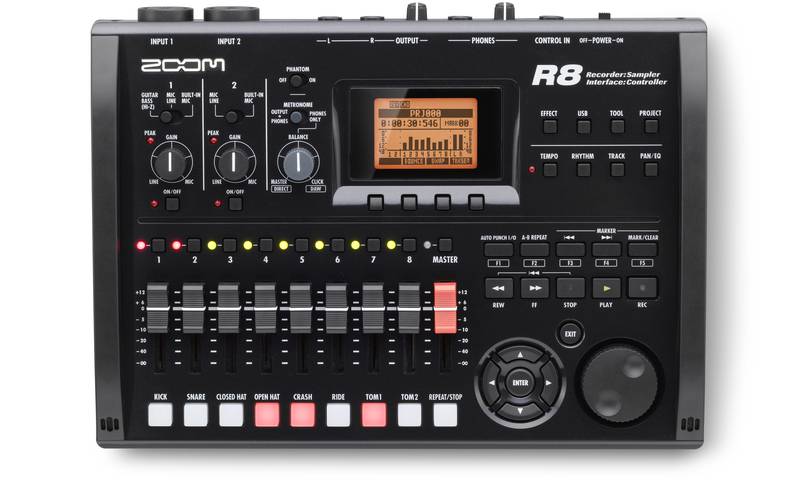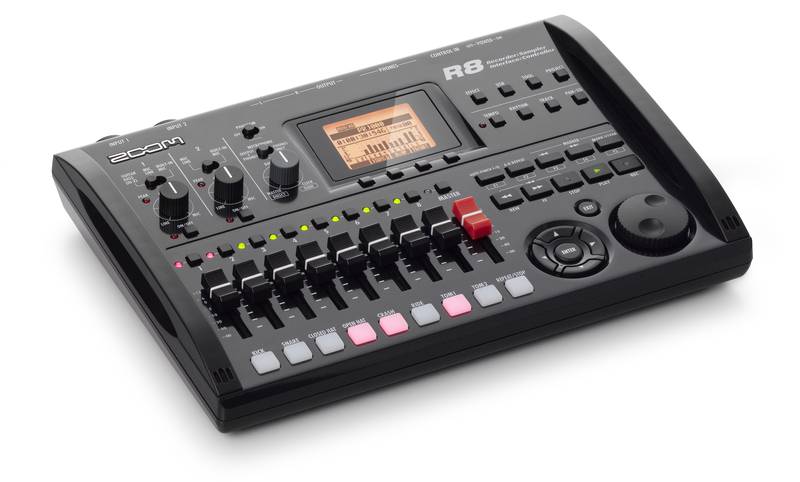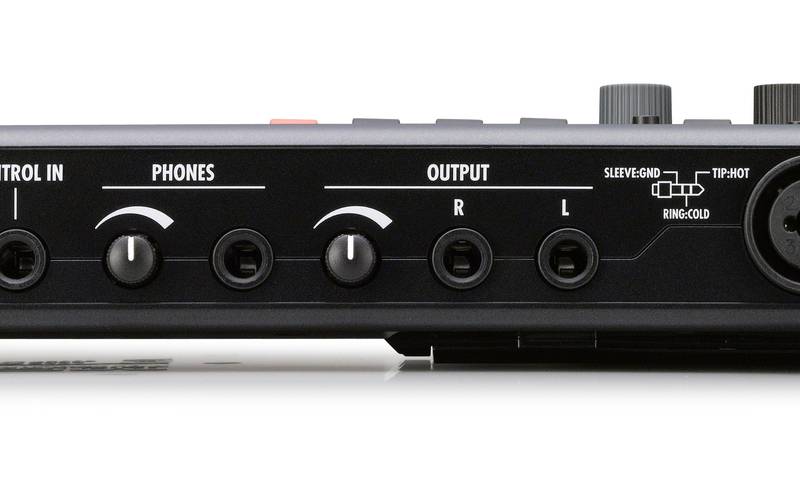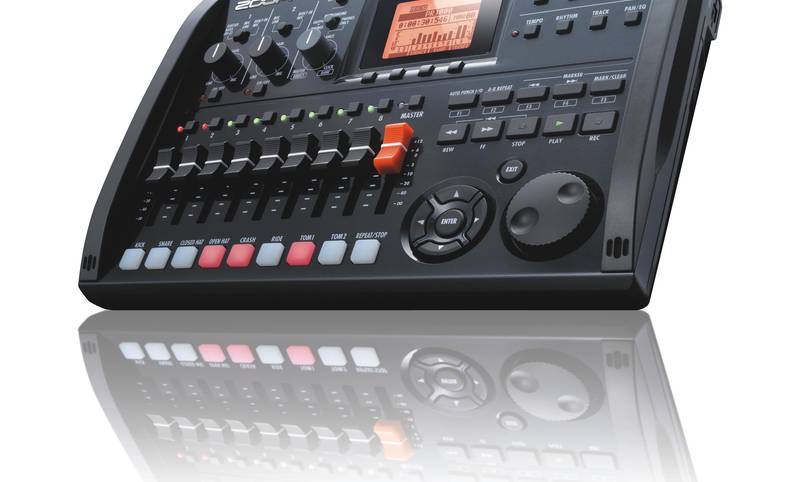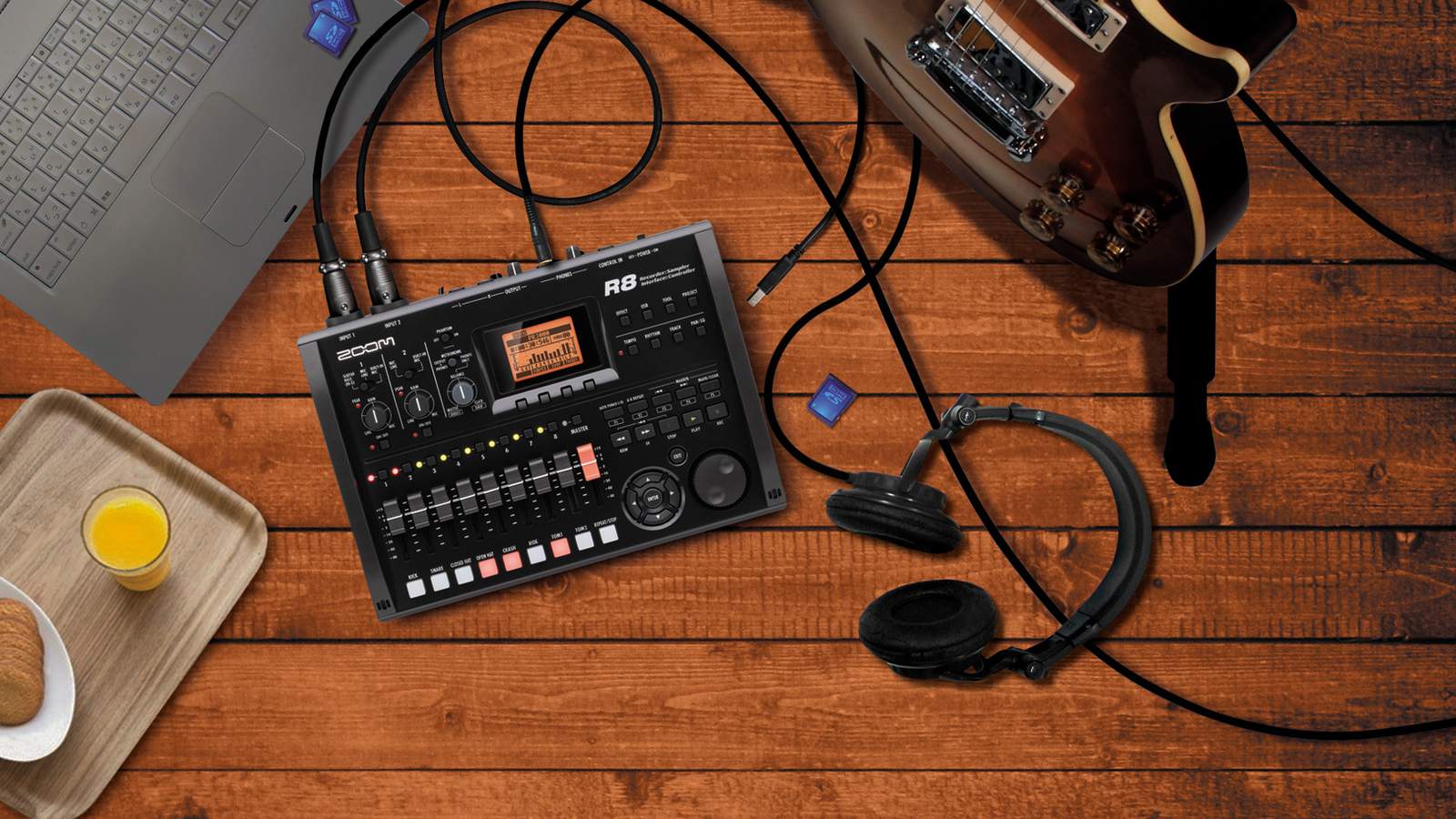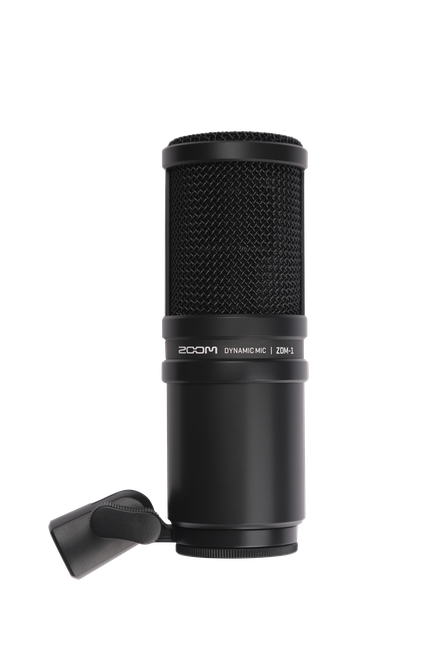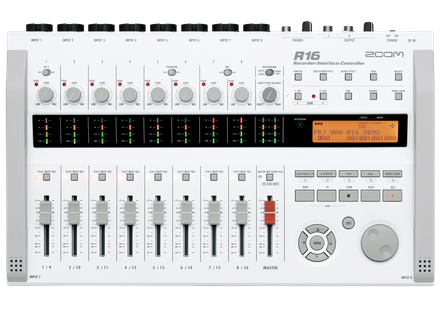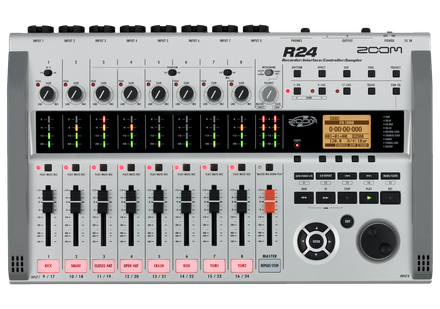The Zoom R8 combines multiple audio production tools in one compact device. In addition to being an 8-track recorder, it's a pad sampler and a rhythm machine, and can even serve as a DAW control surface and computer audio interface. Advanced features such as built-in stereo condenser microphones, dual mic/line/instrument level inputs, onboard DSP effects and chromatic tuner complete the picture, making the R8 a great choice for home recordists and road warriors alike.
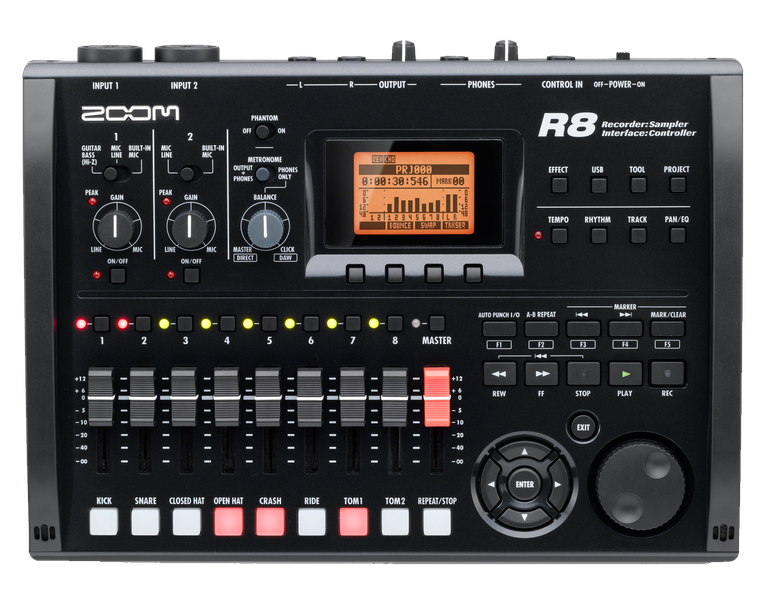
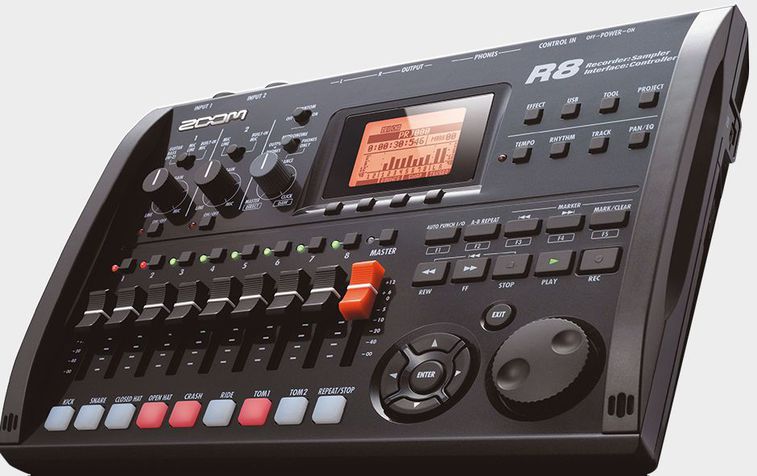
Multitrack Recording Has Never Been Easier
The R8 provides eight tracks for recording and playback (up to two tracks can be recorded simultaneously) in full fidelity WAV format, making it ideal for both professional production and for use as a musical sketchpad. Battery operation allows for field recording and enables you to capture your musical ideas quickly. You can connect external microphones or line-level sources directly to the R8, or use the built-in stereo mic pair for minimal setup. You can also plug instruments such as electric guitar or bass right into the R8. When your multitrack recording is complete, you can use the R8's internal mixer, complete with real faders, equalization, panning, and over 140 built-in DSP effects—including amp models and mastering effects like multi-band compression—to create a stereo mix with studio-quality sound.
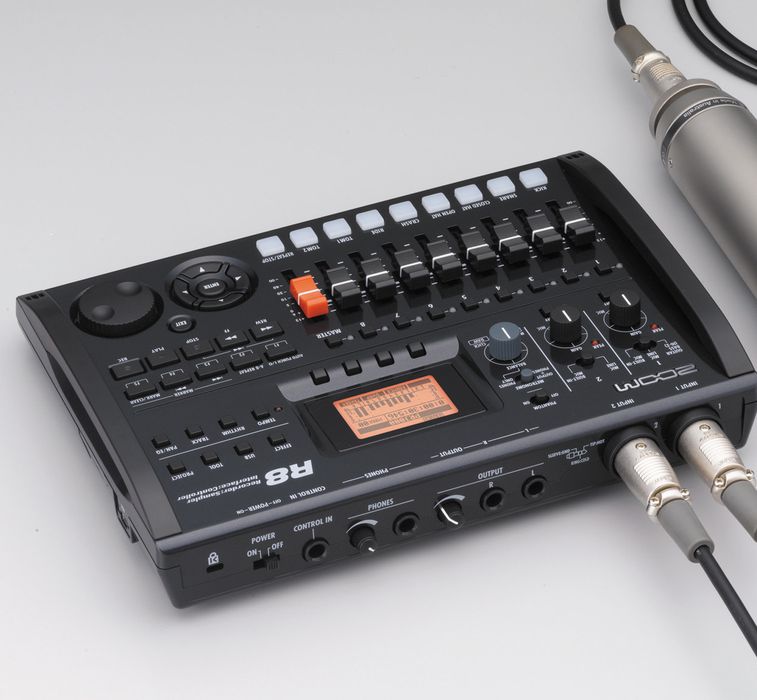
Create Music Any Way You Like
The R8 is a pad sampler and rhythm machine too. Eight velocity-sensitive pads allow the triggering of up to 24 samples, drum sounds, or loops.
In addition, you can create your own custom samples and loops from recorded audio tracks. Quantization and time-stretching can be applied to ensure perfect synchronization. Three playback modes are available for each pad (Repeat, Gate, and 1Shot), and the onboard audio sequencer allows step entry when absolute precision is required.
Best of all, the R8's multitrack recorder is fully integrated with the pad sampler and rhythm machine, allowing a wide variety of production styles to be accommodated. However you choose to build your productions, you'll find the R8 to be the ultimate creative tool.
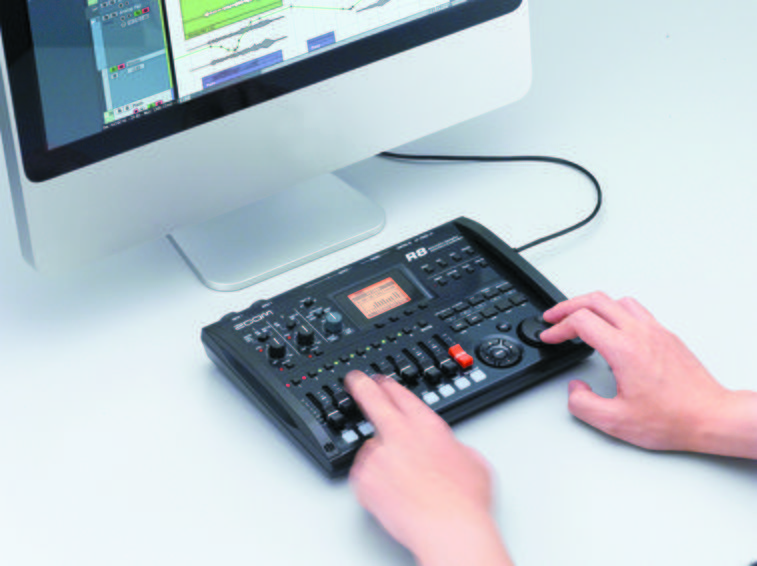
Control Your DAW
If you use DAW (Digital Audio Workstation) software, you probably love mixing in the box but hate mixing with a mouse. The R8's Mackie Control™ emulation enables it to act as a full-featured control surface for popular DAWs which add physical faders and transport/status buttons that streamline the process of creating the perfect mix. In addition, five assignable function keys allow you to set marker points and initiate advanced editing operations.

Advanced Features
The R8 provides dual inputs on combo connectors which can accept either XLR or ¼" balanced or unbalanced cables. Both can handle mic- and line-level signals, and Input 1 can also handle instrument-level signals from passive or active electric guitars and basses. Phantom power of +24 or +48 volts can be applied to both inputs, allowing the use of external condenser microphones. There are also dual balanced ¼" TRS output jacks and a headphone output with a dedicated volume control.
Over 140 studio-quality DSP effects are provided. These include insert effects such as equalization/dynamics processing and send-return effects such as reverb and chorus/delay. In addition, there are guitar amp, bass amp, and mic preamp models and effects specially designed for use on vocals and stereo instruments such as electronic keyboards, plus mastering algorithms like multi-band compression. Effects can be applied during recording and mixdown, or can be used for playback only.
A USB port allows the R8 to send and receive digital data and to act as an 2-input/2-output interface for DAWs. When operating at a sampling frequency of 44.1kHz, input signal can be routed through the R8's onboard DSP effects.
Just 4 AA batteries—either alkaline or rechargeable NiMH—are required for power. Battery life when using alkaline batteries is more than 5 hours, even during continuous recording. Alternatively, you can use the included AD-17 AC adapter, which allows you to power the R8 from any standard wall socket. The R8 can also be powered via USB when connected to a computer.
The R8 records directly to SD cards, with support for both standard SD and SDHC cards up to 32 gigabytes, for a maximum of 100 track hours. Using SD media for recording ensures increased reliability and means that you never have to be concerned about hard drive failure.
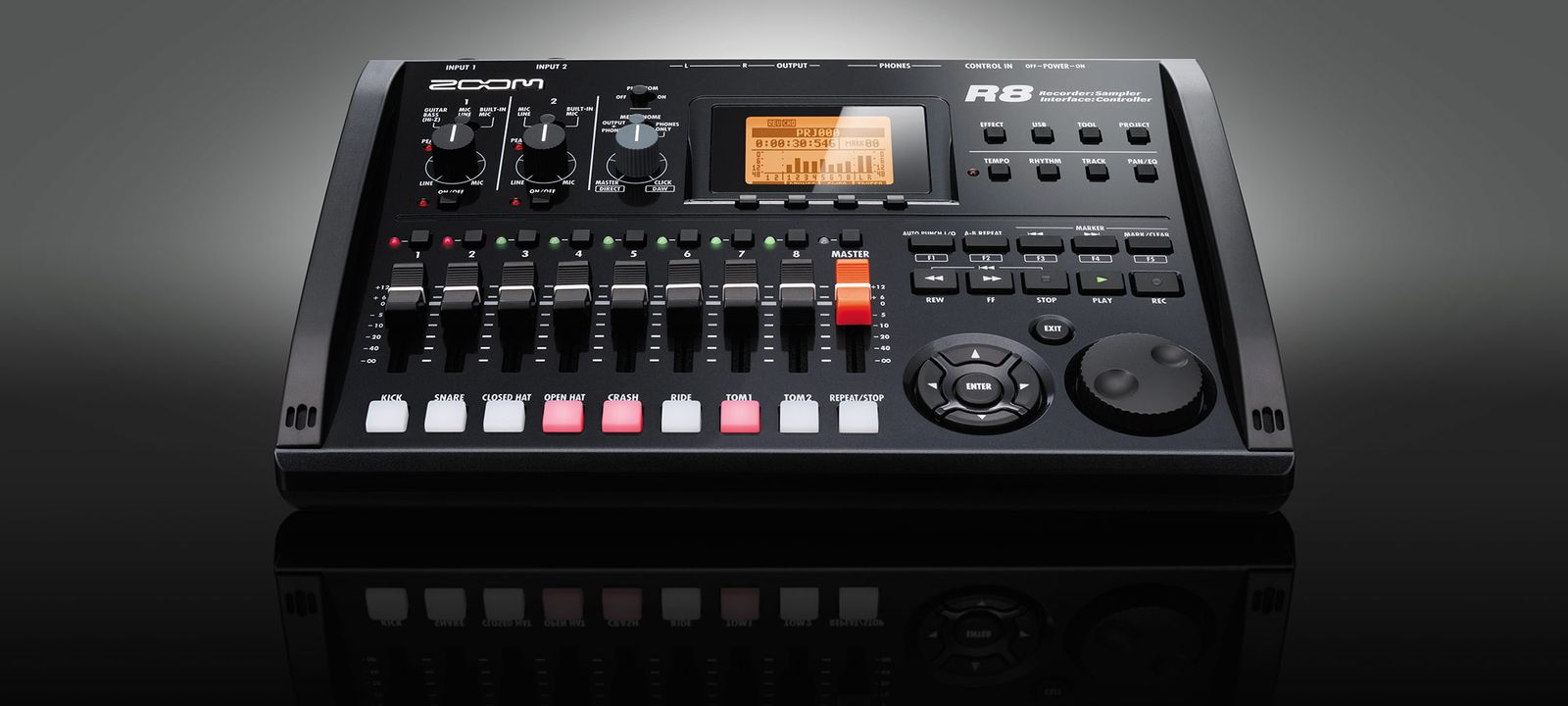
Gallery
